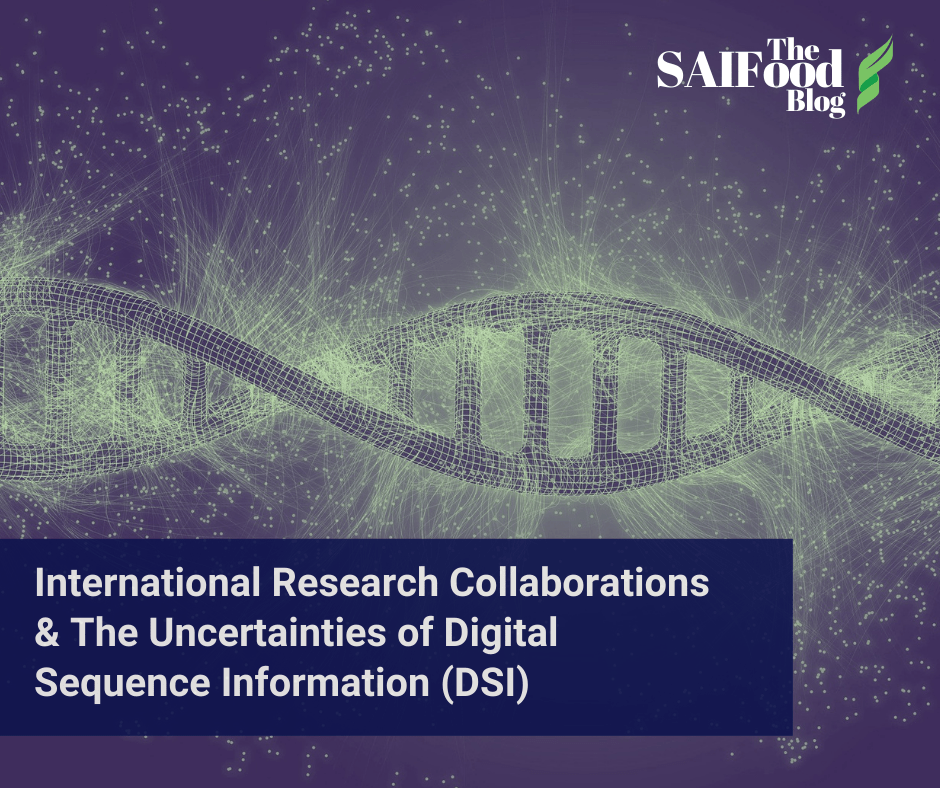The uncertainties of digital sequence information and access and benefits sharing
While science and business have many things in common, one of the most important is certainty. In science, consistent results are imperative, and consistent results establish certainty. In business, consistency provides security. Businesses thrive for consistency in the quality of a product, efficient regulatory systems and strong supply chains, which allow for increased investment opportunities. Conversely, uncertainty is not something either embrace. Uncertainty in business can mean longer regulatory approval or unreliable suppliers, which serves to reduce innovation investments. In science, uncertainty can result in a roadblock for innovation. In short, both sectors function far more efficiently when certainty is maximized.
The genetic uncertainty
A leading challenge for international genomic research collaborations is the uncertainty that presently exists for scientists involved in plant genetic sciences. This uncertainty exists due to the lack of definition regarding what constitutes a ‘genetic resource’. Each international agricultural, food and environmental agreement has a slightly different definition, all of which have been impacted by the digital sequencing of plant genomes. The resulting challenge is when countries are signatories to different agreements and collaborate on research, the agreement difference between countries results in a lack of a clear, precise definition. International discussions over much of the past decade have failed to yield significant headway. The gist of the problem is that as genomic digital sequencing technologies advanced rapidly following the sequencing of the human genome in 2000, plant genomes can be sequenced in a few days for a few hundred dollars. A sequenced plant genome can then be analyzed, with the resulting information about the potential importance of specific genes being replicated in other plants, or become the base component of new drugs or cosmetic products. The dilemma that arises is, should financial benefits be provided to indigenous groups residing in the region where the specific plant originated?
Historically, to gain access to plant material that could be useful in the breeding of new plants or producing new pharmaceutical or cosmetics required having physical access to the plant in question. This required plant breeders or research scientists to meet with indigenous leaders, learn the traditional knowledge of the plant’s properties and receive approval to have access to the plant. Regrettably, in past decades, indigenous groups received no fiscal returns for sharing their traditional knowledge or access to the plant. Understandably, indigenous groups and many governments have concerns about the increased digitization of plant genomes and the applicability of benefits sharing.
The rights of the genome
While the discussions on the topic have continued, two views have emerged. One view holds that a sequenced plant genome is data, containing no knowledge. The other is that the digital sequence is traditional knowledge and researchers wanting access must agree to share benefits prior to gaining access. While the uncertainty regarding plant genetic sequences is significant, it dwarfs the uncertainty in microbial research and genetics.
Numerous biodiverse rich nations are strong advocates for the integration of traditional knowledge into genomic digital sequence information. In many cultures and societies, knowledge about the healing properties of specific plants has been known for generations. Often the preparation of medicines and treatments become part of a specific group’s culture, which helps to explain the importance of the connection between the plant and the products. Given the uncertainty between digital sequence information, genetic resources and traditional knowledge, many indigenous groups are concerned that their traditional knowledge is not being respected or compensated and are reluctant to share their genetic resources.
The sequencing and sharing of microbes for international research collaboration is a key component, as can be evidenced by the global research communities’ response to sharing sequence data for Covid-19 over the past year. Domestic biodiversity legislation in some countries is throwing international research collaborations into jeopardy, as was evidenced in India in 2020. Praveen Rahi, a microbial ecologist at India’s National Center for Cell Science identified a new species of nitrogen-fixing bacteria, that could contribute to increasing pulse production, but he is not able to publish his research. To be able to publish microbial research, the microbes sequence data has to be shared through one of the existing microbial sequence data banks. India’s strict biodiversity laws prevent the sharing of sequence data, hence Rahi is unable to publish his research, which could contribute to improving food security. Such stringent integration of traditional knowledge into India’s biodiversity regulations is now demonstrating the harmful impacts upon research.
International seed and sequence data banks operate on the premise of free and open access to all researchers. There is great potential for genome sequence-based tracking of other plants, animals, and human pathogens that impact our health, livelihood and economies. The benefits of sequence-based disease tracking for wheat rust diseases (RustTracker.org) or Cassava Mosaic Virus should be crystal clear. Restriction of digital sequence information sharing is in direct opposition to the fundamentals at the heart of the scientific enterprise.

